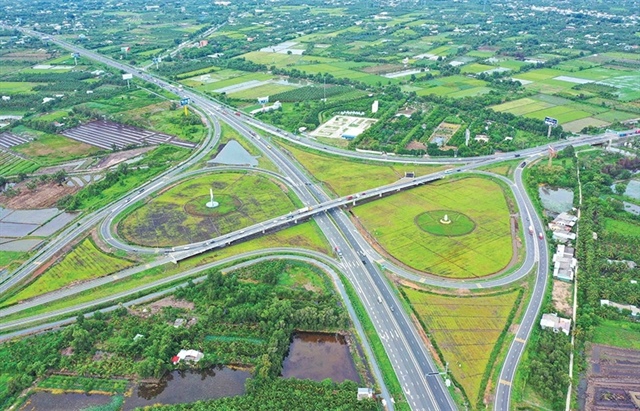Vietnam should stop cross-border trade with China: WTO Center
Vietnam should stop cross-border trade with China: WTO Center
Vietnam should reduce and eventually cease cross-border import and export activities with China in order to narrow its trade gap with the country, a unit under the Vietnam Chamber of Commerce and Industry has proposed.

Import-export transactions between the two countries should only be done via the official mechanism rather than across the border, the WTO Center said in a report, which also outlines many other strong suggestions to narrow Vietnam’s trade deficit with China.
Cross-border trading is a legal international economic activity between people of two neighboring states. The products usually are traded in small volumes and values, and require less paperwork than official trading activities.
The cross-border trading mechanism has been designed to facilitate traders in border areas to manufacture and exchange goods in small volumes, but the policy has in fact failed to attain its objective, according to the WTO Center.
Many traders have made use of the cross-border trade to dodge taxes, it elaborated.
Vietnam’s trade deficit with China widened to US$28.9 billion this year, up 21.8 percent from the $23.7 billion recorded last year, according to the General Statistics Office.
The WTO Center functions as a channel of online consultation, discussion and support for Vietnamese business associations and enterprises about the World Trade Organization and other legal international trade issues.
The center provides legal documents, updated information, publications and training materials on WTO and other legal issues of international economic integration, according to its website.
Many Vietnamese agricultural products are mostly exported to China across the border.
In 2013, for instance, China imported 2.1 million tonnes of rice from Vietnam, most of which was done via cross-border transactions, according to the Vietnam Food Association.
In the first five months of this year, China’s imports of Vietnamese rice rose 50 percent from a year earlier to 600,000 tonnes.
However, 64 percent of the rice export contracts with China have been canceled, and Chinese traders usually force Vietnamese exporters to sell at low prices, the association noted.
Economic experts have attributed the huge shipments of Vietnamese agricultural products to China to the low requirements of the Chinese importers for product quality.
The simple paperwork and short distance of transport via cross-border trade are also a plus for local traders to focus on selling goods to China.
Muoi Son, a rice trader in the southern province of Tien Giang, said he prefers selling to China across the border as “it is an easy market with high demand.”
Son admitted to a local newspaper that he does acknowledge there are payment risks in cross-border trade.
“But we got used to this method so it’s hard to get rid of it,” he said.




















